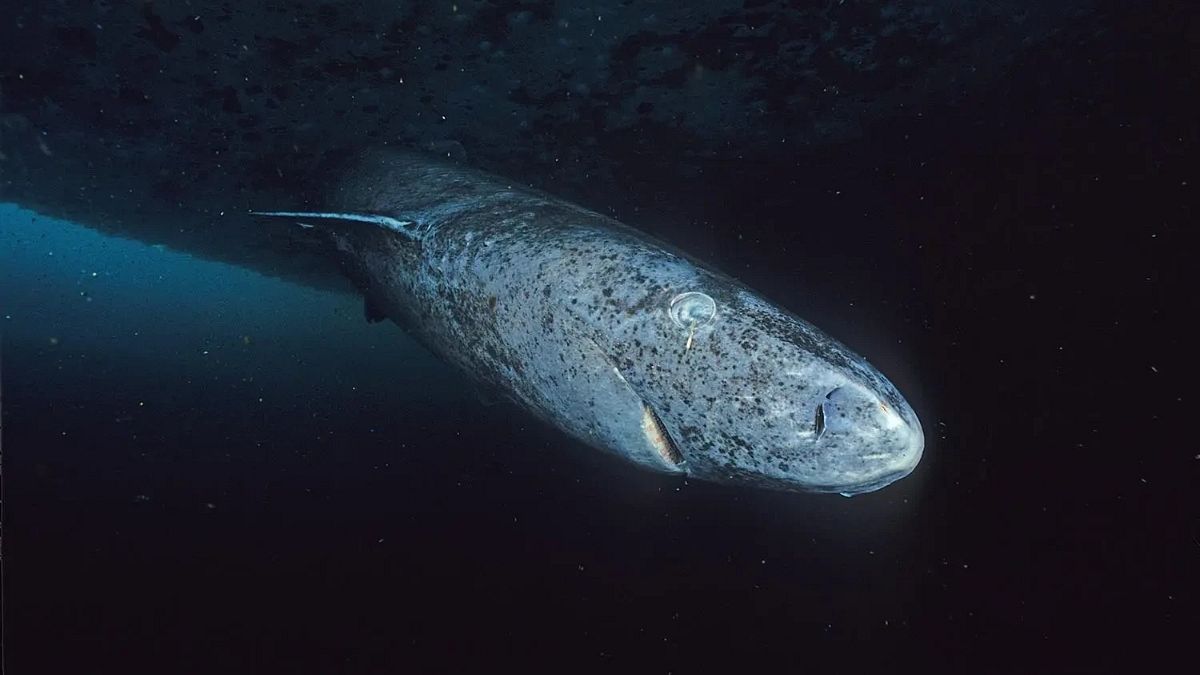The study found that higher ocean temperatures could threaten the unique species of shark.
Sharks are known as one of the most powerful – and feared – creatures in our oceans. Now, though, it’s been revealed that a certain species could teach us how to improve heart health.
New experimental research presented at the ongoing Society for Experimental Biology conference in Prague shows that muscle metabolic activity may be an important factor in the incredible longevity of the world’s oldest living vertebrate species – the Greenland shark.
Scientists believe the findings may be good news for conserving this vulnerable species and for human health.
What sharks can teach us about how to live a longer life
Greenland sharks, also known as somniosus microcephalus, are the longest living vertebrate with an expected lifespan of 270 to 500 years – and beyond.
“We want to understand what adaptations they have that allow them to live so long,” Ewan Camplisson, a PhD student at the University of Manchester working on the research, says.
Previously, it was thought that this long lifespan was due to the shark’s cold environment and minimal movement. Now, it’s been discovered that the factors behind this species extreme longevity appear to be far more complex.
That’s why Camplisson and his team decided to investigate alternative theories.
“Most species show variation in their metabolism when they age,” Camplisson explains, “We want[ed] to determine if Greenland sharks also show this traditional sign of ageing or if their metabolism remains unaltered over time.”
What tests were done on Greenland sharks by researchers?
To measure the metabolism of the sharks, Camplisson’s team of researchers conducted enzyme assays on preserved muscle tissue samples from the creatures.
They measured the metabolic activity of the enzymes using a spectrophotometer – an instrument that measures the intensity of light absorbed after it passes through sample solution – across a range of different shark ages and environmental temperatures.
After these investigations, Camplisson and his team found no significant variation in muscle metabolic activity across different ages of sharks.
That suggests that their metabolism does not appear to decrease over time – and may even play a key role in their longevity.
“This is quite different to most animals which tend to show some variation in their metabolic enzyme activity as they age,” Camplisson says, “The results support our hypothesis that the Greenland shark does not show the same traditional signs of ageing as other animals.”
How do the findings increase our understanding of Greenland shark’s health – and our own?
The results of the shark-based study also showed that the Greenland species metabolic enzymes were significantly more active at higher temperatures.
“This would suggest that the shark’s red muscle metabolism is not specially adapted for the polar environment, otherwise we would have expected to see less of a temperature related difference in activity,” Camplisson says.
With climate change, though, comes a particularly worrying potential trend, which may render long-lived species less able to adapt and, therefore, more at risk of extinction.
“A female Greenland shark may not become sexually mature until it is 150 years old and with such a long generation time, the species will have far less of a chance to adapt to anthropogenic changes in their environment,” Camplisson explains.
Camplisson is not done with his research into Greenland sharks yet.
Going forward, he plans to test more enzymes and tissue types to gain an even deeper understanding of the shark’s metabolic activity, with the effects of climate change in mind.
“My ultimate goal is to protect the species and the best way to do this is to better understand them,” he says.
What do his findings mean for humans and, in particular, heart disease?
“These are issues that become progressively more common and severe with increasing age,” he says, “by studying the Greenland shark and its heart, we may be able to better understand our own cardiovascular health.”

Dr. Thomas Hughes is a UK-based scientist and science communicator who makes complex topics accessible to readers. His articles explore breakthroughs in various scientific disciplines, from space exploration to cutting-edge research.








